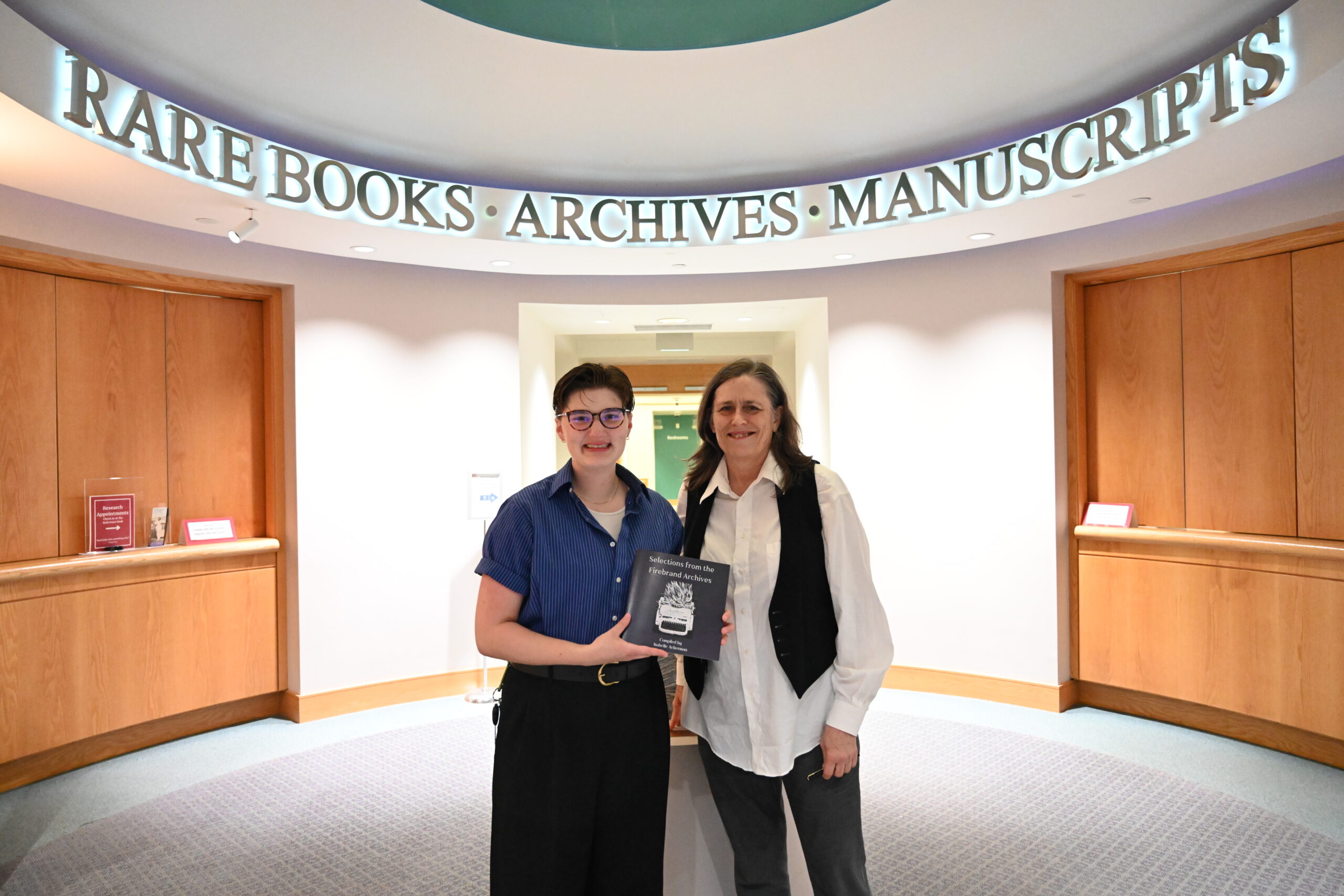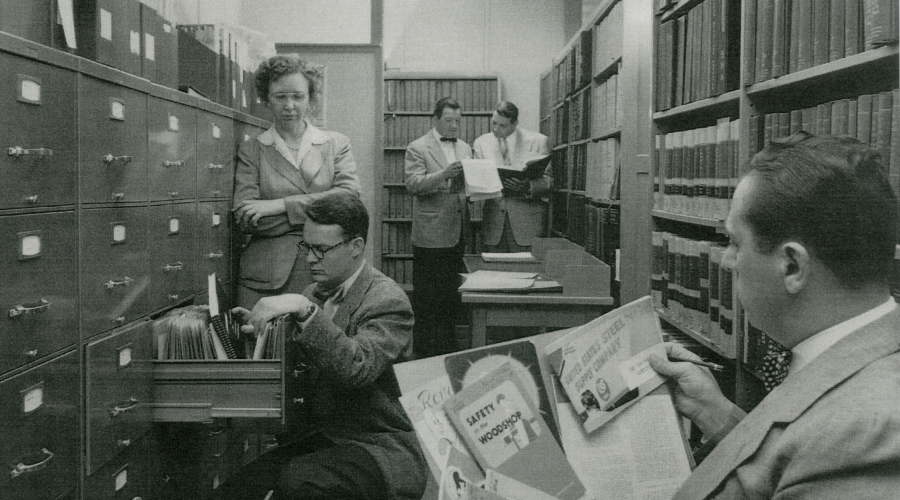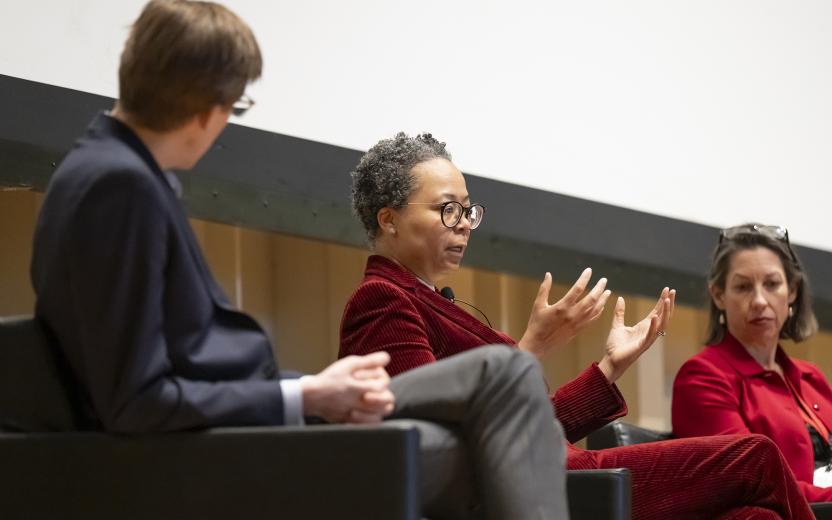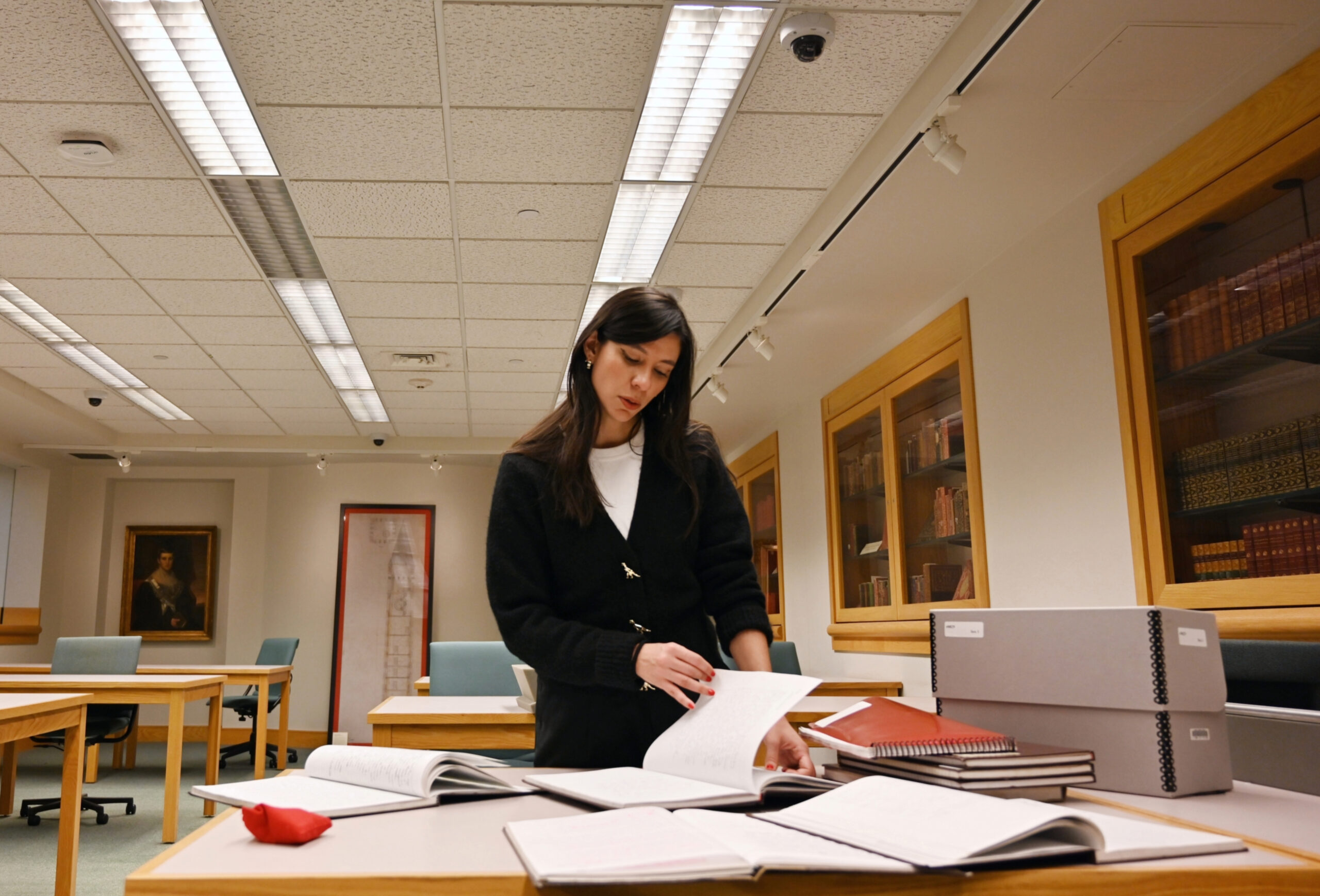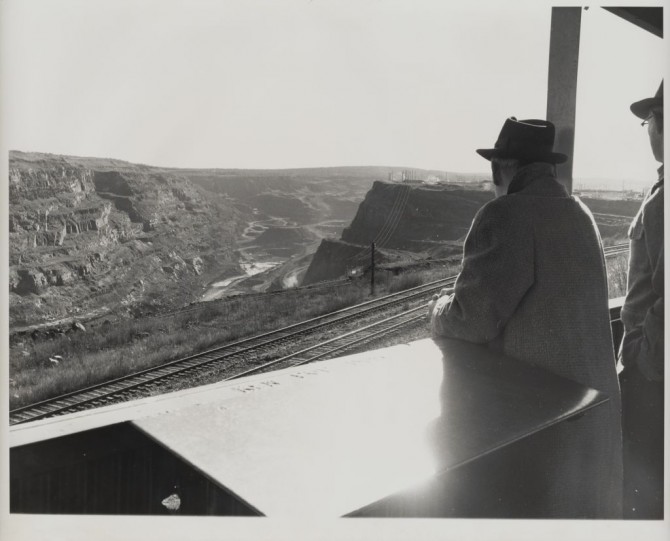
Railroads transformed the world and sped the pace of social change. Newly organized and now available to researchers, the Kheel Center’s railroad collections tell stories about the seismic shifts, catalyzed by railroads, that shaped the modern age.
The collections, drawn from the records of railroad worker union groups and owners, contain firsthand accounts of the Marshall Plan, since railroad unions sent emissaries to help rebuild Europe’s railways after World War II. They document deadly violence against African-American trainmen. They even include a narrative of Augusto Pinochet’s coup in Chile, from a union representative working there with local trade unions.
“The fascinating thing about these collections is the extent to which U.S. railway labor organizations and railroads were involved in different aspects of life in the 20th century, influencing both public policy and private lives,” said Elizabeth Parker, railroad collections archivist at Cornell University Library’s Kheel Center for Labor-Management Documentation and Archives, in Catherwood Library. A 2015 grant from the National Historical Publications and Records Commission funded the work, which organized 63 of the more than 200 railroad collections held by the Kheel Center.
Comprising 380 boxes of records, photographs, correspondence and more, the 63 newly processed railroad collections support research in the ILR School and beyond. They document the often tense relationship between railroad carriers and the groups representing their workers, and range roughly from the 18thcentury – when horse-drawn carts traversed the tracks and whale oil lit the headlamps on steam engines – to the 2000s.
They include material about the Railroad Retirement Act of 1934, used as a model for creating Social Security. Detailed records track the Bracero Program, which promised decent living conditions and wages to international workers filling labor shortages in the United States. They also contain data on drug and alcohol use among train employees, with records of shifting ways of addressing substance abuse so employees would not be afraid to seek help. And the material documents the impact of the 1980s war on drugs, through the Railway Labor Executives’ Association’s lawsuit against the government seeking an end to random drug testing.
Collections from transit workers’ labor organizations in and around New York City relate to the unification of the city’s original three subway lines as well as battles over subway workers’ pay, fare hikes, repairs and state versus city control – battles that strongly echo debates happening today. The Transit Workers’ Union records also contain information on their financial and organizational support for the 1965 Selma to Montgomery, Alabama, march with the Rev. Martin Luther King Jr.
As part of the efforts, 1,655 photographs were digitized, geotagged and posted online through the library’s digital collections site, Flickr and Shared Shelf Commons. The photos were taken by union members to document their workplaces, as part of President Dwight D. Eisenhower’s Railroad Commission board, created to arbitrate a longstanding dispute between railroad carriers and unions over the number of workers needed to safely operate trains.
“We hope this will help scholars in the digital humanities investigate how the areas depicted have changed in 60 years,” Parker said. “It’s very interesting to see how these neighborhoods have changed with the decline of railroads and the rise of gentrification in urban landscapes.”
A version of this story originally appeared in the Cornell Chronicle.

